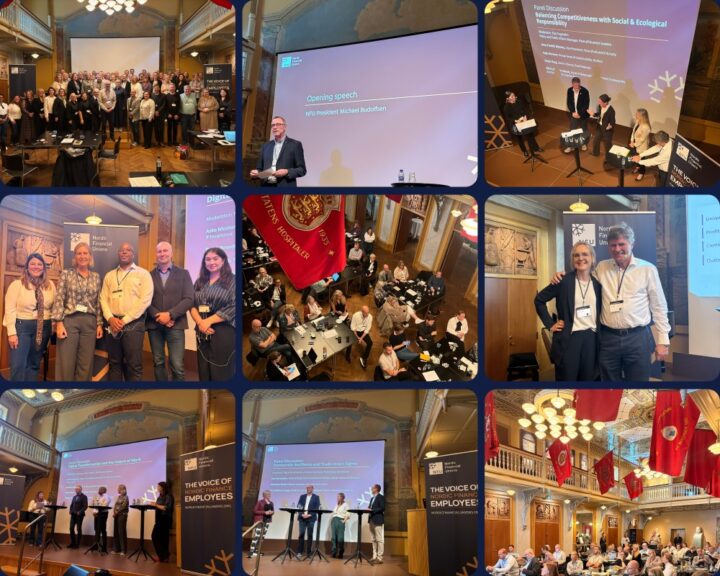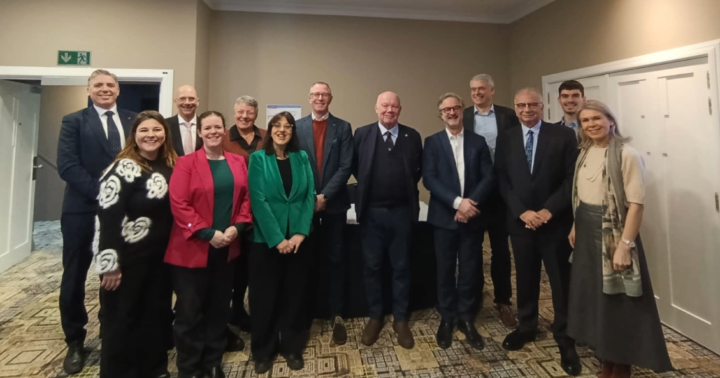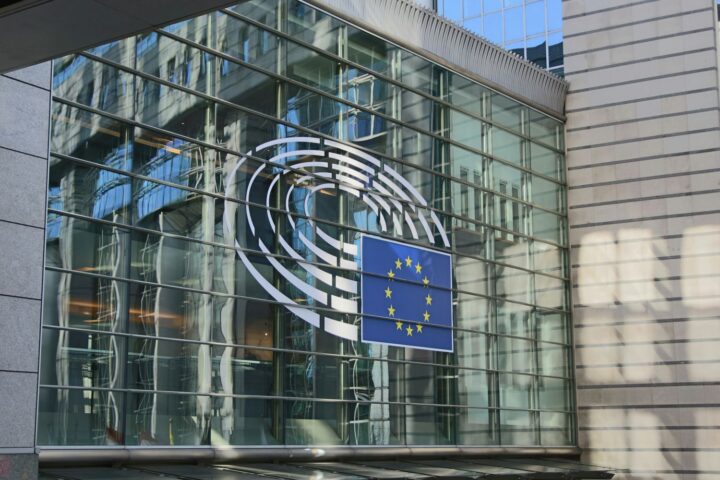From Democracy to Digitalisation: Highlights from NFU’s 2025 Conference
How can financial sector workers stay resilient in times of rapid transformation — and how can competitiveness serve people rather than the other way around? These questions were at the centre when Nordic Financial Unions (NFU) brought together 70 shop stewards, trade union staff and political leaders from across the Nordics in Copenhagen on 15–16 September for its 2025 conference, “Resilience and Responsibility in a Transforming World.”

Democracy Under Pressure
The conference opened with a focus on democratic resilience and trade union rights, examining how far-right movements are undermining democratic institutions across Europe and beyond.
Professor Ann-Cathrine Jungar of Södertörn University traced the shift of radical right parties from the margins to the mainstream in Nordic politics, while Austrian political scientist and author Natascha Strobl warned of the global rise of fascist movements.
A panel discussion featuring Jungar, Strobl, and Dan Koivulaakso, Director of Growth and Climate at the Nordic Council of Ministers, underlined the inseparable link between democracy and trade union rights. Koivulaakso cautioned that limiting those rights is a "slippery slope" and reminded participants that trust has long been "the Nordic gold", a cornerstone of democracy that should not be taken for granted. Strobl emphasised solidarity as the defining strength of the labour movement, in stark contrast to the divisive agenda of the radical right.
International perspectives reinforced these warnings. Cathy Feingold of the AFL-CIO and Nick Weiner of the Communications Workers of America described the challenges of organising in increasingly hostile political conditions in the United States. Their testimonies illustrated how quickly rights can erode and how vital international solidarity remains.
Competitiveness Must Serve People
The second theme addressed how to balance competitiveness with social and ecological responsibility, exploring the involvement of workers in shaping regulatory frameworks and promoting innovation and competitiveness without sacrificing workers' well-being and social and environmental responsibility.
Arne Fredrik Håstein, Vice President of Finansforbundet Norway, argued that competitiveness today must encompass resilience, inclusiveness, and sustainability, areas where the financial sector plays a critical role.
Jesper Berg, Senior Advisor at Rud Pedersen, pointed to the fine line between over-regulation, which can stifle innovation, and under-regulation, which risks exposing economies to systemic shocks.
From the corporate side, . Nordea's Group Head of Sustainability, Anja Hannerz, emphasised that the Nordic region cannot take its strong position for granted but has a responsibility to use its influence to drive responsibility across global value chains.
Stine Lehmann Schack, Head of Responsible Investment Frameworks and Governance at Danske Bank, added that sustainability experts themselves are facing rapidly shifting roles. She emphasised the need for employees to continually adapt to new expectations and navigate an environment characterised by both uncertainty and intense scrutiny.
The Digital Future of Work
The final theme turned to digitalisation and the future of work. New technologies, such as AI and automation, are already reshaping the financial sector, presenting both opportunities and risks.
Esme Terry, Research Fellow at the University of Leeds, underlined that the impact of technology depends less on the tools themselves than on how they are introduced and managed. Drawing on her recent research into AI adoption in financial sector workplaces in the UK, she explained that companies are not seeing mass job cuts, but rather incremental, task-level changes, with routine work reduced and new demands emerging for data literacy and higher-level skills.
At the same time, Dorrit Brandt, President of Finansforbundet Denmark, pointed out that the pace and impact of digitalisation are not evenly distributed across the sector. "Today, the development is very unevenly distributed between large and small banks – and between employee groups". The remark highlighted the need for unions and employers alike to ensure that no workers are left behind in the digital transition.
Thomas Eatmon, Head of Responsible AI at Danske Bank, illustrated the growing organisational power of AI with a provocative question: "What if AI formed a union?" His point underscored the urgency of ensuring responsible and transparent AI development.
Adding an insurance-sector perspective, Asko Mustonen, Head of Intelligent Automation for the Nordics & Baltics at If Insurance, contributed reflections on how AI is unfolding in the industry and what it means for employees.
Resilience the Nordic Way
Across all sessions, a clear message emerged: resilience in the Nordic context is not about merely surviving change, but about actively defending democracy, workers' rights, and equity while shaping a sustainable future.
Resilience also means holding fast to the Nordic values of social trust, democratic rights, and open dialogue—values that trade unions help safeguard every day. But these challenges cannot be faced in isolation. To protect rights and promote fairness in a rapidly changing world, we must strengthen solidarity across borders and stand together globally.


